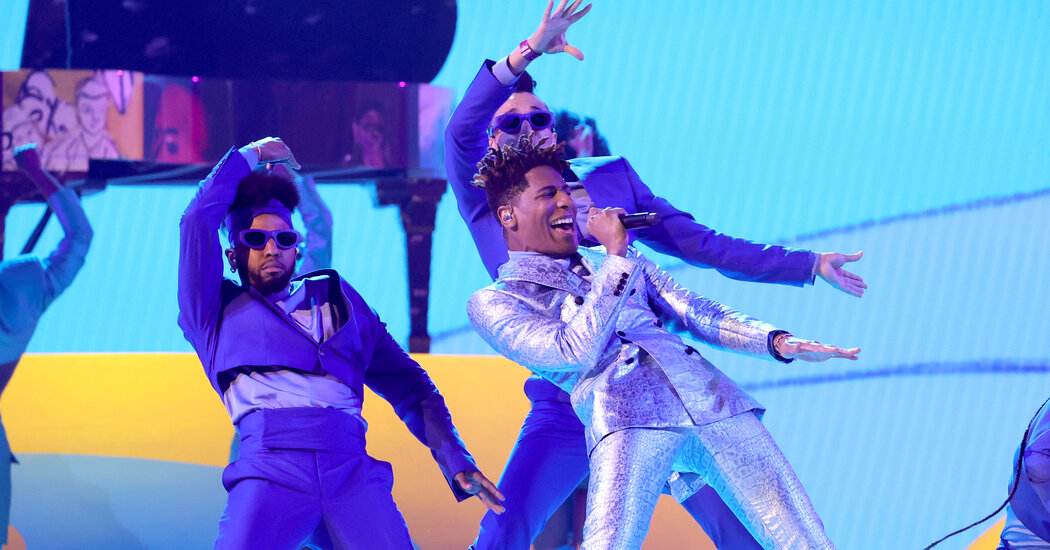
Some of the music on “We Are” pulls its acoustic-funk aesthetic from the 1960s, but other parts recall the 1990s, that pre-9/11 moment when Keb Mo’ was becoming a Grammy favorite, and Starbucks-curated albums summarizing entire genres infiltrated parental CD players everywhere. “Cry,” a single from Batiste’s album that won best American roots performance and best American roots song, is reminiscent of that era.
He does dabble in the now, too. The first half of “Boy Hood,” his collaboration with Trombone Shorty and PJ Morton, retrofits trap aesthetics for a meditation on the simple joys of childhood in New Orleans.
Ultimately, Batiste’s music is about feeling good as a collective act. Often that means playing things that will sound familiar, and keeping it lighthearted. On “Freedom,” a horns-driven funk strut that won the Grammy for best music video and was nominated for record of the year, Batiste sounds like he’s climbed inside the cast of an old protest song, and created a party anthem instead.
But there’s something else to understand before you can get Batiste: He comes from a city where time and space remain somewhat collapsed, and where a Black instrumental tradition that died out 50 years ago in most other parts of the country actually continues. That tradition is based in gathering and in dance, and as a result it’s got perhaps the least complicated relationship to musical pleasure of any living style in this country — even in spite of the increasingly desperate conditions facing those living there.
Batiste’s vibe might seem saccharine to someone from outside New Orleans, especially if you haven’t wandered Frenchmen Street with a plastic cup in hand, or found your way into a brass-band performance at Celebration Hall on a weeknight, or become infected by the Neville Brothers’ Caribbean-inflected funk on a spring afternoon at JazzFest. Listen to the records that Batiste’s New Orleanian peers are putting out these days — Trombone Shorty, PJ Morton and Tank and the Bangas, for a few, following in the footsteps of the Nevilles, Dr. John and Professor Longhair — and you’ll find a similar strain of happy-to-make-you-feel-good funk. Challenge your irony-addled, digital brain to love it back. See if you can handle it.
Batiste’s 11 nominations on Sunday — the most of any artist — touched on categories under R&B, jazz, roots music, film scoring (for his work on the Pixar film “Soul”) and classical music. What that tells you is that supporting a young jazz musician these days means getting behind something broader than any one genre, even when he’s a relative traditionalist, proud to stand in the shadow of Satchmo.




